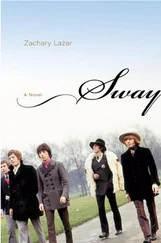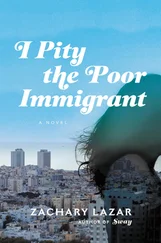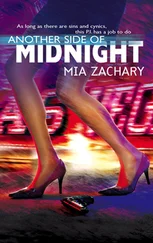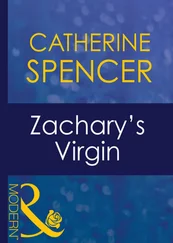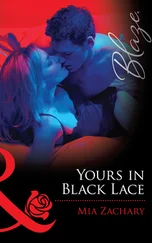Stella also found a low-paying job at a private art school, but kept looking for a position as a college teacher. During those first difficult months in California, I remember she painted light, small watercolors and left them on the balcony to dry. The warm wind blew gently on them. They sometimes flipped over, fluttering. I liked those ethereal creatures, I collected them, some of them I framed and hung on the wall.
Things had just started looking up, when one day there was a complication. It showed up in the negatives of a cheery, redheaded gentleman with a mustache and hairy forearms, holding a heavy automatic rifle and stepping with his boot on the head of a dead African elephant. Several black men with rifles also were looking at the camera, smiling. I printed several pictures in disbelief until I confirmed that the elephant was real and the pictures authentic. I jumped up and showed this barbarity to William, who was sifting through the mail. The Korean narrowed his eyes, threw a reproachful look over his spectacles and, with the electric bill in hand, pointed me back to my work.
“William,” I said. “This here is an African elephant. Is it not an endangered species?”
“I don’t know,” said William, continuing to browse through the junk mail.
“William,” I insist. “We have to notify the authorities. The African elephant is in the Red Book.”
“Are the prom pictures ready?”
“William, listen, this is illegal and atrocious. To kill an animal and photograph yourself with the body, in this case, a Red Book cadaver. .”
“Don’t meddle in things you don’t know anything about. What happened with the prom pict. .?”
“This man is a monster, William!”
The Korean suppressed his reaction and said, “This man is Mister Richard O’Reilly. He lives in Rancho Santa Fe and builds shopping malls just like this one.” A broad gesture with his arm followed. “For fifteen years, Mr. O’Reilly has been developing negatives from all his safaris here alone. He brings in hundreds of rolls. What do you want me to do?”
“You do whatever you want, William, but I cannot sit here and make color corrections of the negatives of a serial killer!’’
“Why do you say that?” He asks cagily.
“Don’t you see him posing with murdered animals?”
“So?” He leans closer to me. “So? Who says he was the one who killed them?”
“William,” I snapped. “You know very well he killed them. Why would he pose with them if he didn’t?”
“That might be, but how are you going to prove that he killed them himself? Huh? What are you going to do? Sue him? Who are you? You think his lawyers won’t crush you to pieces because you’ve decided to spoil the weekend of a respectable American citizen just because he decided to pose with a dead African elephant?” Pause. “And you better change the chemicals in the developer before the machine jams up again!”
“I changed the chemicals last Tuesday!”
“Change them again!”
I sat down back behind the printing machine and selected one of Mr. O’Reilly’s negatives. In the “quantity” box of the touch screen display, I typed in 1000. In “size,” I put 8x10 inches, and pressed the start button. I got up and methodically began organizing my work area. William stopped looking at his mail and, for a while, just observed me.
A group of school boys and girls entered the shop and started checking out the small digital cameras on display. I was expected to ask them if I could help. I didn’t. William threw me a murderous look, quickly got up, and went over to the kids, forcing a smile. I continued to silently and slowly clean up around myself. William was split between the group of kids and me. I gathered my things, put on my jacket, lifted the small divider, and got on the other side of the counter. William’s face tightened:
“Hey, hey, where are you going?”
I didn’t answer.
“Hey, come back here and finish your work!”
I didn’t even look at him.
“Hey! Hey, wait!” The kids, sensing the conflict in the air, looked at me, then at him, then back at me. I waited to be sure the printer started spitting out the first enlarged photos of Mr. O’Reilly stepping on the big, dead animal. I left the store, lifted up my hood, and shoved my hands deep in my pockets. It was cloudy and was getting chilly.
*
The sun is high already. I turn the AC on and start thinking about the weed in the trunk. This, for sure, is the most absurd of all the schemes in my life so far. I don’t even know how to roll a joint, yet I’m on my way to sell dozens of pounds. I know I have to keep it moist and fresh so it’ll be more expensive — I know that much.
I remember, some years back somebody had brought some marijuana to a party and there were lemon peels in the zip lock bag. To keep the weed moist, they explained. In this heat, I should probably do something like that now, too. My gas level light has been blinking bright red for at least twenty minutes now. I take the next exit to Pamona.
*
— what are these feathers?
— wings
— do you have to photograph me with them?
— yes
— zack, i’ve seen a million pictures of naked women with wings
— yeah, me too. now please, turn around so i can figure out how to attach them
— they’re heavy
— stop complaining
— i’m not compl. .
— stella, please!
*
Pamona is a small town ten miles from the freeway. I pass farms with tractors and combines, decaying buildings with rusting tin roofs, chicken farms, grazing cows, horses, and tall eucalyptus trees. At the first blinking red traffic light, I stop to make way for an elderly man in a cowboy hat pulling three llamas tied to a rope behind him. They glide across the zebra crosswalk. The last one stops for a second and looks me straight in the eye. I reach for my camera but the cowboy tugs at the animal. It blinks heavily and lazily moves on. At this moment, I realize that from now on the Nikon will always be loaded and within reach.
Llamas. . I must have been seven or eight at the time. The circus would come in our town every summer. So, there we were. My mom and I were standing in front of a poster which claimed that we’d see “tigers, lions, and lamias. ” I wasn’t that interested in tigers and lions; I had seen them jump through burning hoops before. My imagination was tickled by the word lamia. In my juvenile imagination, these were mythological creatures — the dragons from the illustrated fairy tales I would read over and over tirelessly. My mom bought tickets, we sat in our seats, and I waited for the performance. How intense was my disappointment when, instead of three-headed fire-breathing lamias , they pulled several scrawny, sheep-like creatures with long necks and sad eyes on stage. Llamas.
*
We ran out of money. Stella found another job at a center for mentally challenged children. I continued ironing a fresh shirt each morning and making the rounds at advertisement agencies, studios, and photo labs, with less and less success. Then I started selling my lenses one by one. In the job section of the Sunday papers my attention was inevitably drawn to “Pharmaceuticals” as it was closest to “Photography.” Then I found work in a wedding photography studio. The owner, Madam Solomon, was a five-hundred pound Jewish woman who wore a wig and crimson lipstick on her gargantuan mouth. As soon as she hired me, she began training me in her own trademark method of photographing weddings. I had to watch hours and hours of her training videos, memorize a set number of compulsory poses, and strictly adhere to her manual. Madam Solomon’s plan was to create a standard mode of photographing brides and grooms who, regardless of circumstances, were to always look the same. For this purpose, Madam Solomon had hired many photographers like me who had to shoot with the same cameras, the same settings, the same lighting, and the same printing materials. The goal was for all of us, regardless of who we were, to achieve absolutely identical results. Madam Solomon had set up shops in seven states, but her goal was, in seven years, to open seven times as many. This was just the beginning, though, because America was simply one of the markets for her wedding business. Madam Solomon was determined to become the McDonald’s of wedding photography.
Читать дальше




